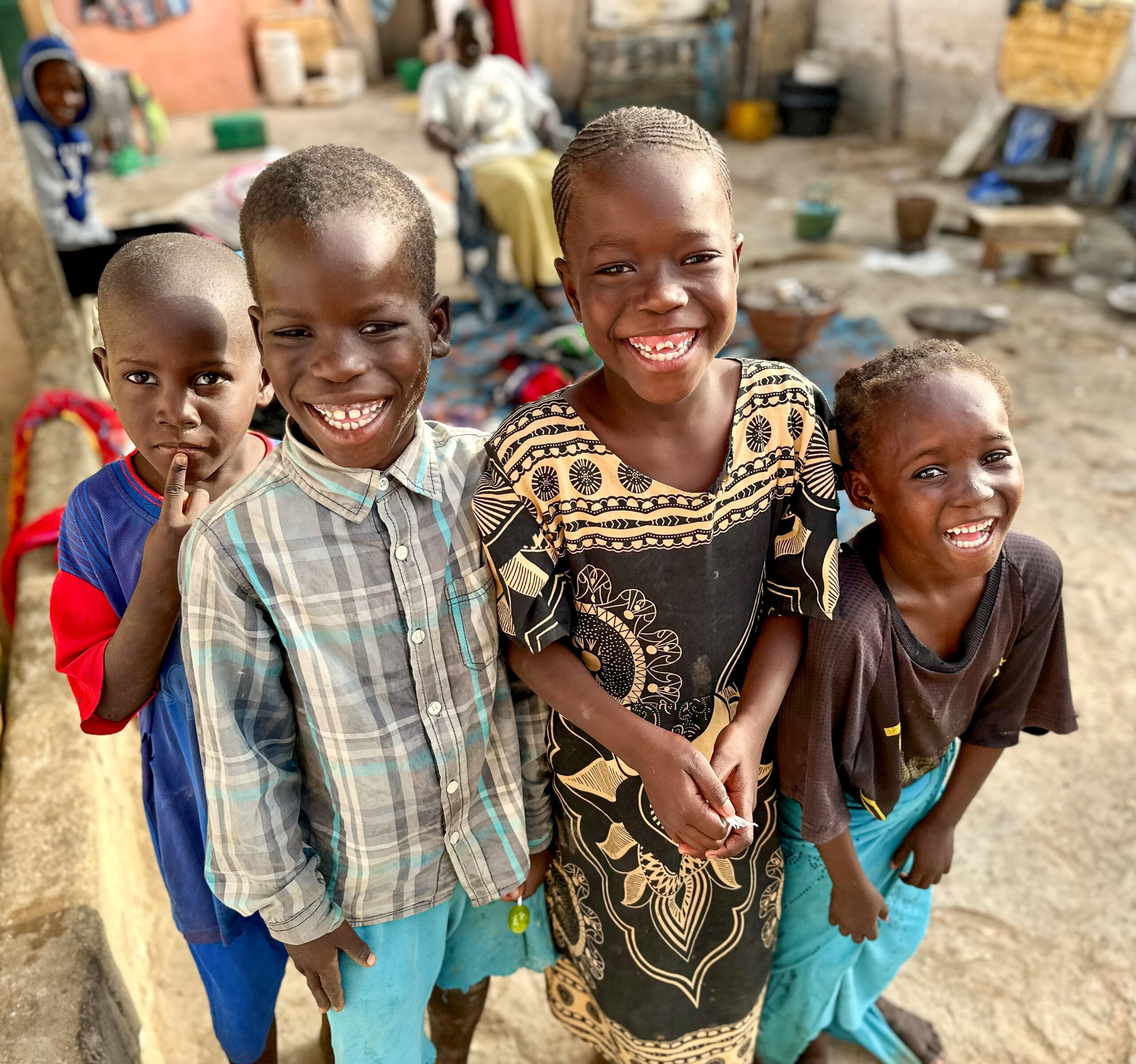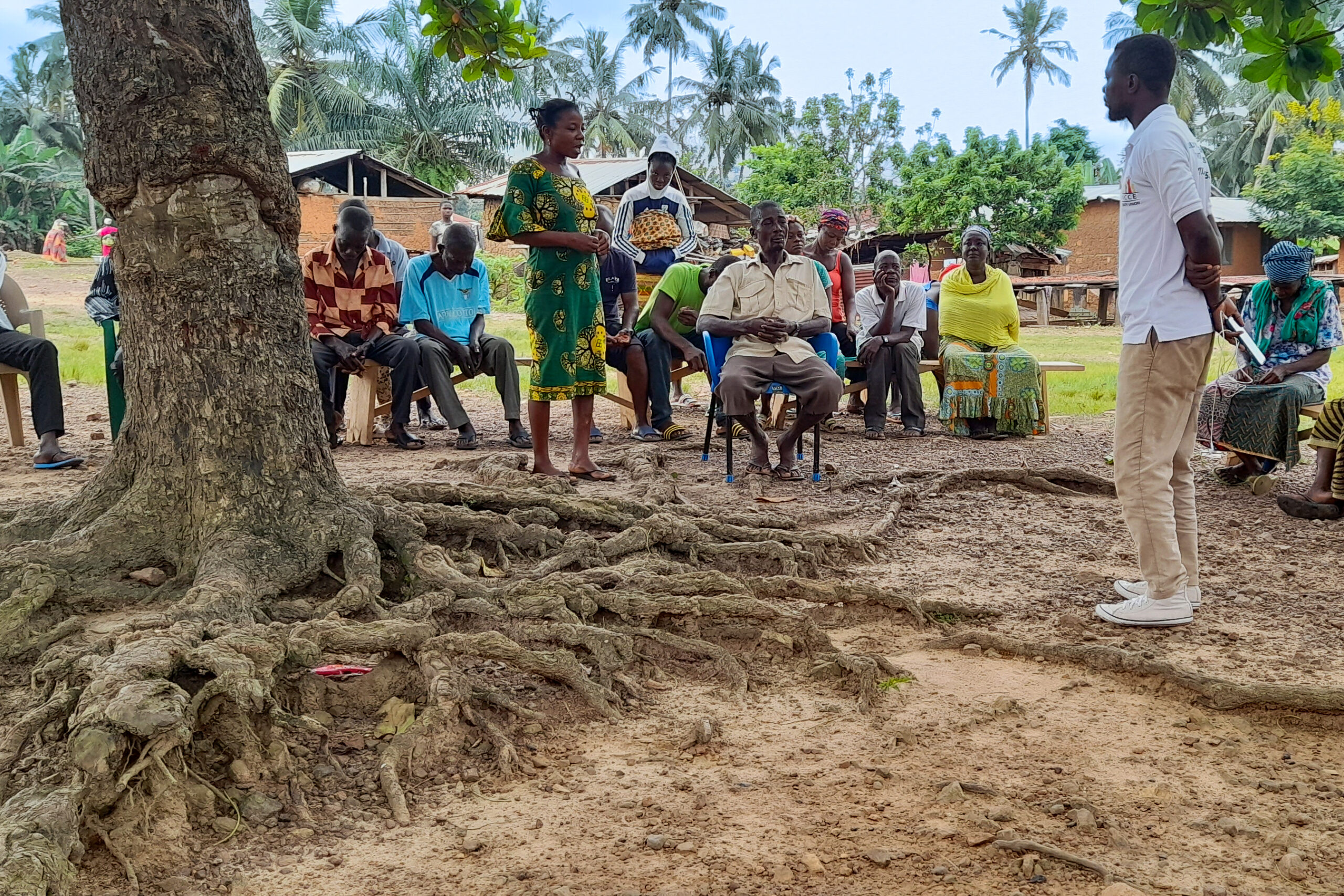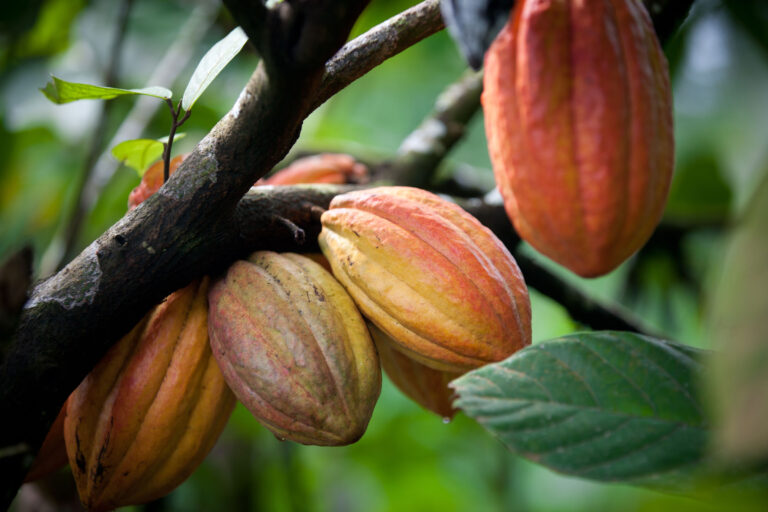
Committing to a child labor-free world
Fidelis Yapel, MATE MASIE project director

I want to share an update on some of the U.S. Department of Labor-funded MATE MASIE project’s inspiring successes as we work with communities, government and other important stakeholders in Ghana to better understand the complex drivers of child labor in the cocoa industry, and to develop solutions to prevent it.
It is important for all of us, and especially the communities most directly affected, to remember that millions of young people around the world continue to be denied a childhood, an education and opportunities to pursue a better future because of child labor.
The ILO defines child labor as any work that deprives children of their childhood, potential, and dignity, as well as work that is detrimental to physical and/or mental development. Poverty is the main cause of child labor. It prevents children from receiving the education they need to end the cycle of poverty in their families and communities and help children to reach their full potential. After a couple of decades of progress reducing the number of child laborers, the ILO reports that numbers are once again on the rise.
In Ghana, we localized the theme for World Day Against Child Labor this year to: “Intensify Action Against Child Labor, Do It Now! Do it Fast!” because we recognize the urgency of raising more awareness of the problem, intensifying action and combining all available resources. The clock is ticking to meet the world’s 2025 deadline to end child labor in all its forms, one of the UN’s Sustainable Development Goals.
Here’s what we on the MATE MASIE project are working on. With our partners, we’re continuing our campaign to raise awareness on child labor, sensitize the public in Ghana to the problem, and engage law enforcement in discussions on improved institutional coordination to strengthen capacity to enforce both international and national child labor policy and law. We’re holding community activities including quiz contests, durbars (meetings with traditional leaders), and radio discussions to raise awareness on child labor in target communities and districts in the Ashanti Region.

We believe that amplifying messaging about the problem ─ and how we all can play a role in ending it ─ will motivate increased action, including expanded reporting on child labor in affected communities.
MATE MASIE is an expression in Ghana that means “What I hear, I keep.” In our project, we’re developing new ways to share detailed information so communities and government are hearing ─ and listening to each other and finding solutions, together. We’re collaborating with local cocoa cooperatives and officials on a new Child Labor Monitoring and Remediation System, which is helping to collect and disseminate data on children either engaged in or at risk of becoming involved in child labor. The system is now being used, along with a new Child Labor Risk Management tool, by the cocoa cooperatives that are partnering with our project. It’s already supporting the identification of vulnerable member households and children, and being used to deliver social protection services.
Our children will inherit our world. Let us pause, reflect, and prove our commitment to work together to cure the child labor canker, everywhere.
Funding is provided by the United States Department of Labor under cooperative agreement number IL-35537-20-75-K. One hundred percent of the total costs of the project are financed with USG federal funds for a total of $4,000,000 dollars. This material does not necessarily reflect the views or policies of the United States Department of Labor, nor does mention of trade names, commercial products, or organizations imply endorsement by the United States Government.
Related Projects

